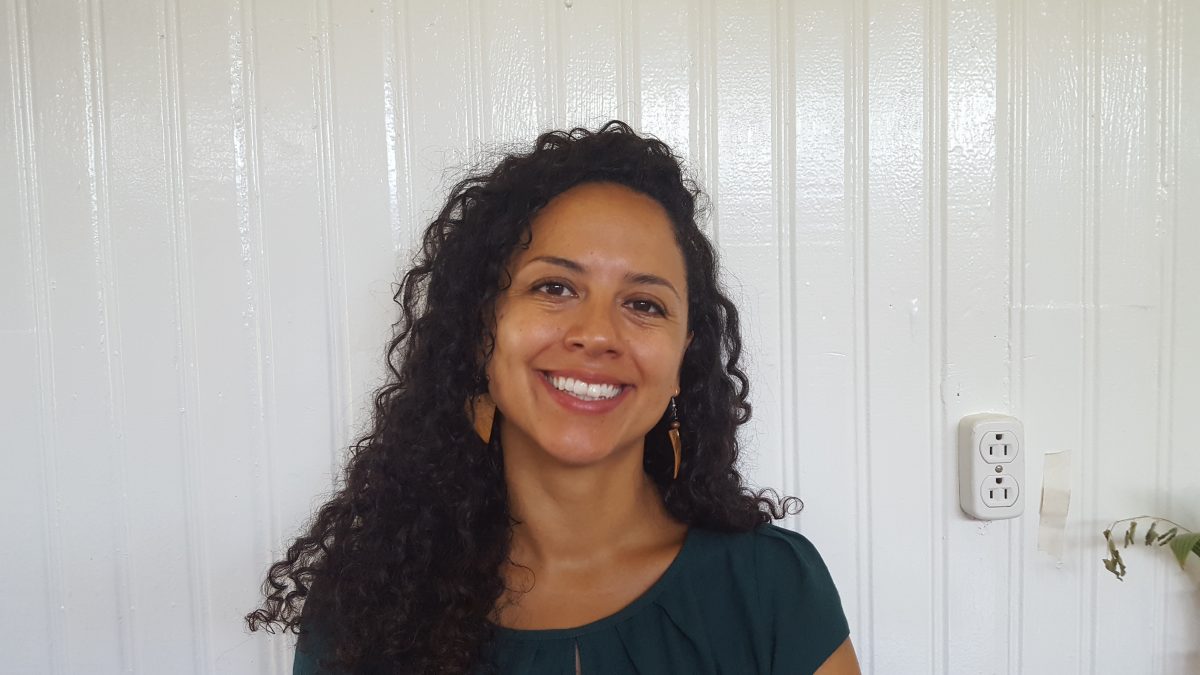‘The books that make us’ is the first of four non-fiction works that will be featured this month.
Its writer, Carinya Sharples, is a British-Guyanese freelance journalist, writer and editor from London. “I grew up in London—I say London rather than England or the UK as I feel at home in this multicultural city but sometimes feel like a foreigner when I step outside the capital,” she explains.
Her father was born in then British Guiana in 1937 and left in 1960 and he still lives in London today with her mother, who is English.
Sharples, whose work can be found at her website (https://carinyasharples.com/) and her blog has been writing for most of her life. “It began with short stories and poems as a child, and later shifted into journalism. I took whatever opportunity I could to make writing my job,” she says, while noting that she started a family magazine from home, later wrote for her school newspaper and became news editor of her university newspaper.
Sharples has worked as a freelance sub-editor and journalist, going where opportunities have led her and finding herself in “all sorts of interesting and unlikely situations,” such as visiting NASA in Houston for a TV programme on the International Space Station, accompanying a rough sleeper to court to challenge the policy of “moving on” homeless people on the streets of London, and chatting with activists from Botswana about the changes they’re bringing to their country.
In part, it was work that brought her to Guyana, where she planned to spend a few months on an oral history project for the country’s 50th independence anniversary that would focus on recording the memories of people of her father’s generation on what life was like before 1966. Although she ended up shelving the project (“…I hope to revive it – hopefully in collaboration with others so that we can build a database of rich stories and memories of ordinary Guyanese people”), she stayed for three and half years as “…mi spirit tek Guyana (if I can say that).”
Of her time here, she says, “It was a sometimes incredible, sometimes lonely, always eye-opening experience. I used my Humming of the Bird blog to try to capture some of this journey in words, and make sense of what I was feeling and thinking. I found that writing helped me give shape to those thoughts and feelings, and unpick them. Coming from colonial Britain to the country it once colonised as a person of both heritages was not always an easy space to live in, but it showed me the work I had (and still have) to do to decolonise my ideas, my writing and my actions. Writing about this was a necessary and enlightening experience but still I constantly questioned myself about whether it was my place to write about Guyanese issues and topics, and whether I was being too lecturing, moralising or cliched. Meeting some wonderful people who weren’t afraid to challenge me and were generous with sharing their country helped immensely too.”
She suggests that new readers may start with her entries “Holding it together”, “On small acts of kindness in Guyana”, “Paralysed with fear in Guyana” , and “‘Good morning, miss’ – getting to grips with greetings in Guyana”. She says the last, which was republished in the Guyana Annual, was written fairly early on in her time in Guyana and captures the difficulty of shifting from one culture to the next.
Asked to recommend other blogs about Guyana, Sharples says she is “an avid follower” of Vidyaratha Kissoon’s Thoughts of a Minibus Traveller as “he writes in such an honest, engaging way using humour, snippets of conversation, meditations on nature and food, painful testimony and outrage at human rights abuses to explore life in Guyana.” She says she also follow blogs that offer new insights and hidden stories and cites Sherlina Nageer’s Freedom by Any Means, Akola Thompson’s blog and newspaper columns, and Seeking El Dorado, as examples. She notes that as a part-time lecturer at the University of Guyana for a year and a half during her time in Guyana, she had encouraged her students to start blogs as a way of practising their writing and finding their writing voice. “It’s great to see young people creating their own platforms and challenging society’s views of themselves, Guyana and the world at large,” she says.
Submissions for The Writers’ Room can be sent to writersroom@stabrokenews.com.
Read our guidelines online here.






